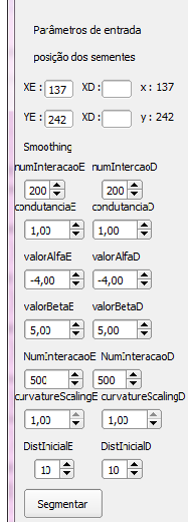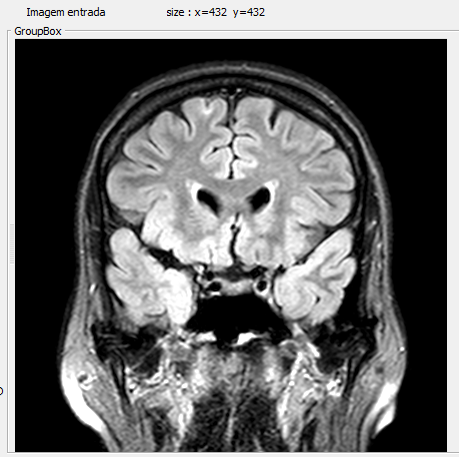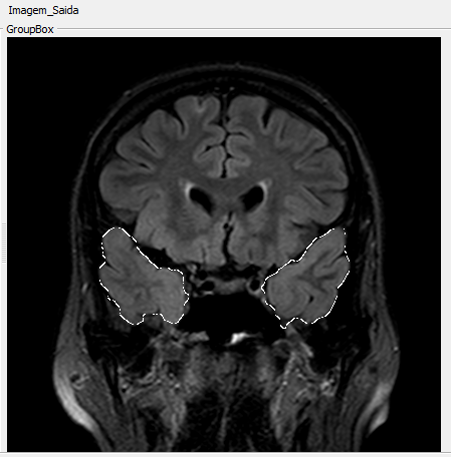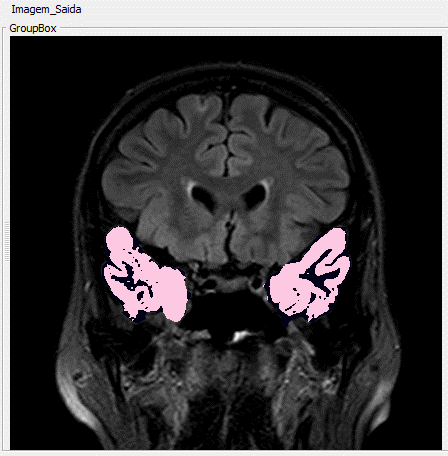Difference between revisions of "2013 Summer Project Week:Epilepsy Surgery"
From NAMIC Wiki
| (8 intermediate revisions by the same user not shown) | |||
| Line 58: | Line 58: | ||
<b>Classifier</b> | <b>Classifier</b> | ||
<li>Once segmented, the images are analyzed using texture descriptors from the intensity histogram and local pixels dependence measures proposed by Haralick were extracted. | <li>Once segmented, the images are analyzed using texture descriptors from the intensity histogram and local pixels dependence measures proposed by Haralick were extracted. | ||
| − | Subsequently, the set of feature vectors from the segmented images is evaluated using three classifiers in WEKA environment. | + | Subsequently, the set of feature vectors from the segmented images is evaluated using three classifiers in [http://www.cs.waikato.ac.nz/ml/weka/ WEKA] environment. |
<li>Images of 32 patients with TLE were used, 15 of those exhibiting blurring phenomenon in TL and 17 do not. | <li>Images of 32 patients with TLE were used, 15 of those exhibiting blurring phenomenon in TL and 17 do not. | ||
<li>In total, a set of 98 planar images was segmented, and 51 are classified in "with blurring" category and 47 "without blurring" category. | <li>In total, a set of 98 planar images was segmented, and 51 are classified in "with blurring" category and 47 "without blurring" category. | ||
| Line 105: | Line 105: | ||
<li>As a result, from preselected 32 texture feature descriptors, 6 were shown to be relevant for classification of TL tissues. | <li>As a result, from preselected 32 texture feature descriptors, 6 were shown to be relevant for classification of TL tissues. | ||
<li>Thus, we observe that using approach of texture analysis of segmented images, can helps the specialist to identify signal change MRIs in the temporal lobes of patients with TLE. | <li>Thus, we observe that using approach of texture analysis of segmented images, can helps the specialist to identify signal change MRIs in the temporal lobes of patients with TLE. | ||
| − | <li>Although | + | <li>Once trained, classifier is easily included in this system, and can help surgery decision. |
| + | <li>Although these preliminary results are promising, the method still needs to be validated considering TL separatelly and in a larger image database. | ||
| + | <h3>To do list:</h3> | ||
| + | |||
| + | <li>As a nest step, I´ll integrate the code to 3DSlicer. | ||
| + | <li>Try new schems of texture analisys to this application. | ||
| + | <li>Implement few machine learning algorithms, in addition to image processing in C++. | ||
| + | <li>Speed up some time consumming algorithms with GPU programming. | ||
| + | <li>Extend these and other ideas to cotical dysplasia: 2014 ! | ||
==References== | ==References== | ||
*Shaker, M. & Soltanian-Zadeh, H., 2008. Voxel-Based Morphometric Study of Brain Regions from Magnetic Resonance Images in Temporal Lobe Epilepsy. Image Analysis and Interpretation, 2008. SSIAI 2008. IEEE Southwest Symposium on, 209-212. | *Shaker, M. & Soltanian-Zadeh, H., 2008. Voxel-Based Morphometric Study of Brain Regions from Magnetic Resonance Images in Temporal Lobe Epilepsy. Image Analysis and Interpretation, 2008. SSIAI 2008. IEEE Southwest Symposium on, 209-212. | ||
Latest revision as of 15:01, 21 June 2013
Home < 2013 Summer Project Week:Epilepsy SurgeryKey Investigators
- USP - Luiz Murta
Objective
This project will investigate the presence and location of the epileptogenic focus in temporal lobe by analyzing patterns of texture in magnetic resonance imaging (MRI) after segmentation using anisotropic diffusion filters anomalous and geodesic active contour.
Purpose
Progress
Examples:
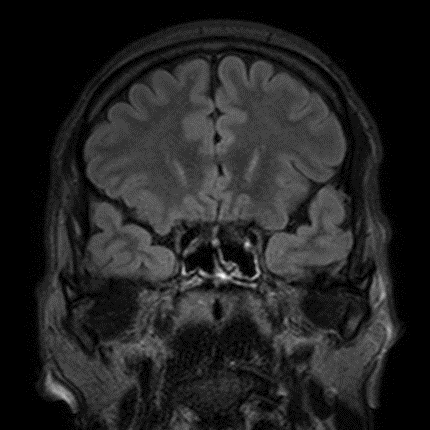
Normal MRI at mesial temporal lobe
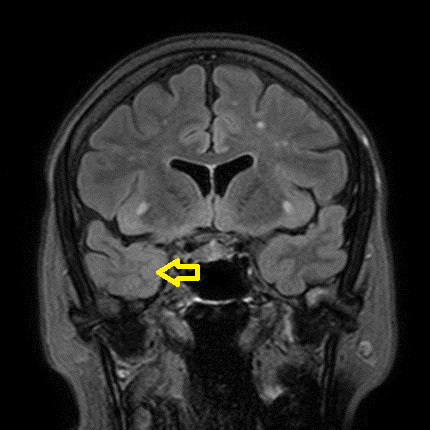
MRI containing blurring phenomena on right side as indicated by the yellow arrow
Results
Classifier
-- artificial neural network;
-- nearest neighbour;
-- and decision tree
-- 24 were extracted from the co-occurrence matrix using Haralick texture descriptors and
-- 8 were intensity statistics obtained from histogram.
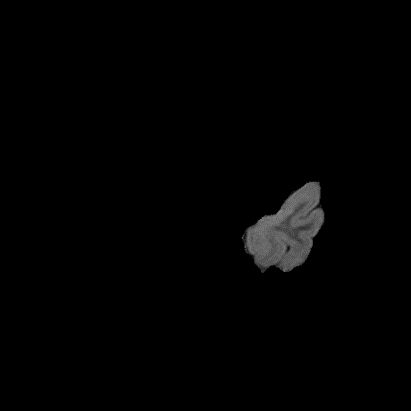
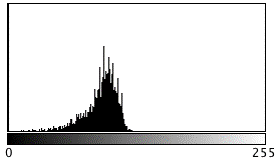 no blurring
no blurring
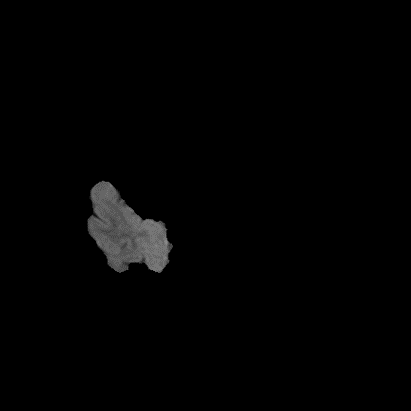
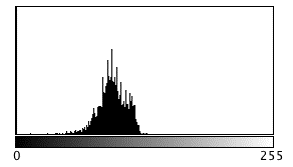 blurring
blurring
Decision Tree
D_Hist_MeanIntensity <= 0.453
| D_Hist_stdDev <= 0.138: with_blurring (5.0)
| D_Hist_stdDev > 0.138
| | E_Hist_Kurtosis <= 0.497
| | | E_COOmeanHomogeneity_dist3 <= 0.425
| | | | D_COOmeanHomogeneity_dist2 <= 0.318: without_blurring (9.0/2.0)
| | | | D_COOmeanHomogeneity_dist2 > 0.318: with_blurring (5.0)
| | | E_COOmeanHomogeneity_dist3 > 0.425
| | | | E_COOmeanHomogeneity_dist3 <= 0.895: without_blurring (26.0/1.0)
| | | | E_COOmeanHomogeneity_dist3 > 0.895: with_blurring (3.0/1.0)
| | E_Hist_Kurtosis > 0.497: with_blurring (5.0)
D_Hist_MeanIntensity > 0.453
| E_Hist_Kurtosis <= 0.48: with_blurring (12.0)
| E_Hist_Kurtosis > 0.48
| | E_COOmeanHomogeneity_dist1 <= 0.432: with_blurring (3.0)
| | E_COOmeanHomogeneity_dist1 > 0.432: without_blurring (2.0)
Number of Leaves : 9
Conclusions
To do list:
References
- Shaker, M. & Soltanian-Zadeh, H., 2008. Voxel-Based Morphometric Study of Brain Regions from Magnetic Resonance Images in Temporal Lobe Epilepsy. Image Analysis and Interpretation, 2008. SSIAI 2008. IEEE Southwest Symposium on, 209-212.

